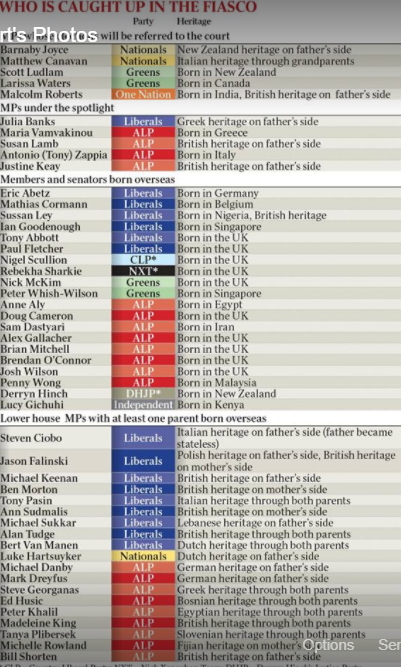cross-posted from citizenshipsolutions by John Richardson
Update January 2018: This post has been updated with some new links and discussion.
Prologue – The “Story Of The Century
200,000 Saudi US citizens liable to pay taxes | Arab News — Saudi Arabia News, Middle East News: http://t.co/lPmRfQ5gf5 via @Arab_News
— John Richardson – U.S. Citizenship Lawyer (@ExpatriationLaw) November 3, 2014
Since July 1, 2014, the United States via threats threats of the FATCA Sanction, has begun a “world wide hunt” for people born in the United States
(or are otherwise deemed to be “U.S. tax subjects”). A compilation of my posts describing the mechanics, effects and costs of FATCA and the FATCA IGAs is available in “The Little Red FATCA Book“. FATCA has spawned litigation against both the U.S. and Canadian Governments. A discussion of the “Alliance For The Defense Of Canadian Sovereignty” FATCA lawsuit against the Government of Canada is available here. Some thoughts on the “U.S. FATCA Legal Action” lawsuit against the U.S. Government are here. Both lawsuits have been vigorously defended by the respective Governments. The U.S. lawsuit may have reached the end of its viability (lack of standing and various procedural issues). The Canadian lawsuit continues.
With respect to those “Born In The USA”, the U.S. legal “claim of tax jurisdiction” is two-fold:
1. Those born in the United States (unless they have relinquished U.S. citizenship” for both tax and nationality purposes) are U.S. citizens.
2. Citizens of the United States are subject to the provisions of the Internal Revenue Code regardless of where they live in the world. The Internal Revenue Code (“IRC”) includes but is not limited to the obligation to pay taxes according to U.S. tax rules. The “IRC” also includes a wide range of “penalty laden reporting requirements“. The “IRC” also strongly discourages (through penalties and sanctions) participation in non-U.S. pension plans, non-U.S. investments (including non-U.S. mutual funds), the use of “non-U.S. business corporations” and (incredibly) non-U.S. spouses. (Even the divorce of a U.S. citizen and non-citizen is likely to be significantly more expensive.) As a result, the “extra-territorial application of the “IRC”) has the effect of exercising U.S. “control” over the lives of it’s citizens who do NOT live in the United States. Therefore, it is clear that the “extra-territorial” application of the “IRC” both (1) imposes the full force of the “IRC” on the resident/citizens of other countries and (2) has the effect of imposing the U.S. cultural values mandated in the “IRC” on those other countries. One can identify a list of the “10 Commandments” which are imposed on Americans abroad in an FBAR and FATCA world.
(Note that with the exception of U.S. citizens and “permanent residents”, as per Internal Revenue Code Sec. 7701(b), an actual physical connection to the United States is required to establish U.S. tax residency.)
As the article referenced in the above tweet makes clear, many people “claimed” by the United States as “tax residents”have never had any connection to the United States except that they were born there. The article includes:
Awad Al-Zahrani, whose son has US citizenship, said he would give it up.
“My son got the passport since he was born there while I was studying in the country back in 2000. At the time, the Saudi embassy had told me that it would not be a problem for him to hold two passports. Now that we have to pay taxes, though, we’ll be giving the US passport up.”
Abdulrahman Al-Habib, head of journalism studies at KAU, argues that Saudis who were born in the US should be exempt from paying taxes.
“We should establish a unified center to help Saudis clear their former tax registers,” he said.
US Consul-General Todd Holmstorm,however, confirmed that US citizens should pay income tax and called on their international counterparts to help them eliminate tax evasion.
“The tax law is designed to combat evasion through increasing transparency in the financials of US taxpayers,” he said.
Mr. Holmstorm’s bio indicates that his career has had a Canadian connection in Ottawa, Canada. His comments in the above article imply that he believes that those (1) born in the U.S. who (2) do not live in the U.S. and (3) do not pay taxes to the U.S. are guilty of “tax evasion”. Strong language indeed. Yet, these are his words which clearly reflect the attitude and policy of the U.S. Government.








